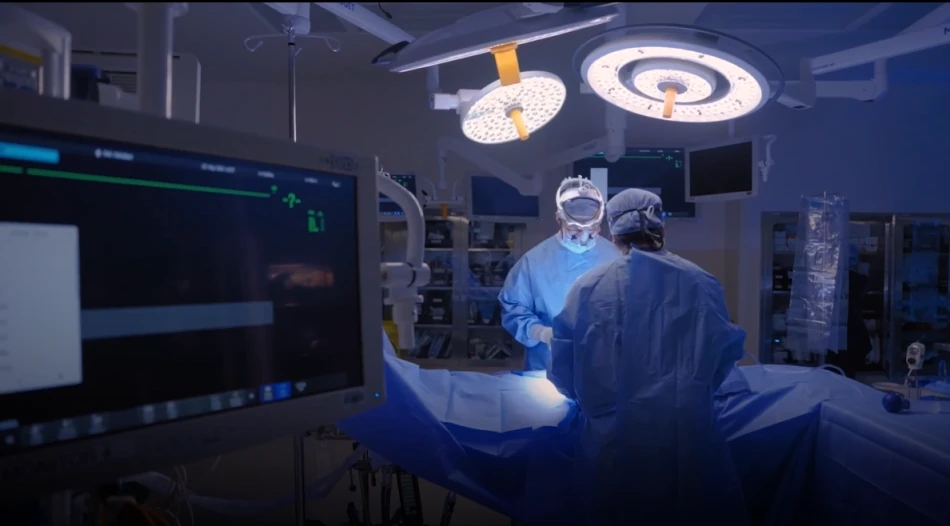
Abu Dhabi Performs Over 1,000 Successful Organ Transplants, Transforming Lives
Abu Dhabi Emerges as Middle East Organ Transplant Hub with 1,090 Successful Procedures Since 2017
Abu Dhabi has positioned itself as a regional leader in organ transplantation, completing 1,090 successful procedures since launching its national organ donation program in 2017. With 290 transplants performed in 2024 alone, the emirate is rapidly establishing itself as a medical destination that rivals established centers in Singapore and the United States, driven by advanced infrastructure and pioneering surgical techniques including robotic procedures.
Record-Breaking Performance Signals Regional Medical Ambitions
The numbers tell a compelling story of rapid medical advancement. Abu Dhabi's transplant program has achieved remarkable scale in just seven years, with the 2024 figures representing a significant acceleration. The 290 procedures completed last year included seven heart transplants, 142 kidney transplants, 117 liver transplants, 22 lung transplants, and two pancreas transplants.
This performance places Abu Dhabi among the most active transplant centers globally on a per-capita basis, signaling the UAE's broader strategy to become a medical tourism destination and reduce reliance on overseas treatment for complex procedures.
Groundbreaking Surgical Milestones
The emirate has achieved several regional firsts that demonstrate its technical capabilities. These include the first dual heart-lung transplant in the UAE, the first triple kidney exchange, and the region's first combined lung-liver transplant. Perhaps most notably, medical teams successfully performed organ transplants using donations from COVID-19 patients, showcasing adaptability during the pandemic.
Four-Hospital Network Drives Success
Abu Dhabi's transplant success relies on a strategic network of four specialized centers: Cleveland Clinic Abu Dhabi, Sheikh Khalifa Medical City, Burjeel Medical City, and Sheikh Shakhbout Medical City. This distributed approach mirrors successful models in countries like Germany and the Netherlands, where multiple centers create redundancy and specialization.
Cleveland Clinic Abu Dhabi: The Flagship Operation
Cleveland Clinic Abu Dhabi has emerged as the program's flagship, performing 241 multi-organ transplants in 2024 alone. The hospital operates the UAE's only dedicated multi-organ transplant intensive care unit and the country's sole lung transplant program. This concentration of expertise reflects the Cleveland Clinic's global strategy of replicating its Ohio-based success in international markets.
Sheikh Khalifa Medical City: Kidney Transplant Specialist
Under the PureHealth Group umbrella, Sheikh Khalifa Medical City has carved out a niche in kidney transplantation, completing over 114 procedures in 2024. The facility is expanding into adult and pediatric liver transplants, indicating confidence in growing demand and surgical capabilities.
Investment and Market Implications
Abu Dhabi's transplant success represents a significant healthcare investment that extends beyond immediate medical outcomes. The program positions the emirate to capture medical tourism revenue that traditionally flows to destinations like Thailand, India, and Turkey. For a region where wealthy patients often seek treatment in London or Houston, local availability of complex procedures represents import substitution in healthcare services.
The initiative also supports the UAE's broader economic diversification strategy, creating high-value jobs and establishing medical expertise that can be exported regionally. Countries like Jordan and Lebanon have successfully built medical tourism industries that serve regional populations, and Abu Dhabi appears to be following a similar playbook with more resources.
Regional Context and Competition
Abu Dhabi's transplant program development coincides with similar initiatives across the Gulf. Saudi Arabia has invested heavily in medical infrastructure through its Vision 2030 program, while Qatar has built specialized medical facilities ahead of the 2022 World Cup. This regional competition for medical excellence reflects broader efforts to reduce dependence on Western medical centers.
The timing is strategic, as global transplant waiting lists continue to grow while donor availability remains constrained. Countries that can efficiently manage organ allocation and perform complex procedures stand to benefit from international patient flows.
Future Expansion and Challenges
The program's rapid growth trajectory suggests continued expansion, but sustainability will depend on maintaining donor participation and surgical quality standards. The integration of robotic surgery and advanced imaging technologies indicates Abu Dhabi is positioning for next-generation transplant procedures.
Dr. Noura Al Ghaithi, Undersecretary of Abu Dhabi's Department of Health, emphasized the program's regional impact, noting that the emirate has become "a leading regional center in organ transplantation, with influence extending beyond the region's borders."
The success of Abu Dhabi's transplant program reflects broader trends in medical globalization, where emerging markets leverage technology and investment to compete with established medical centers. As the program enters its eighth year, its continued growth will test whether rapid expansion can be maintained while preserving the clinical excellence that has driven its initial success.
Most Viewed News

 Sara Khaled
Sara Khaled






